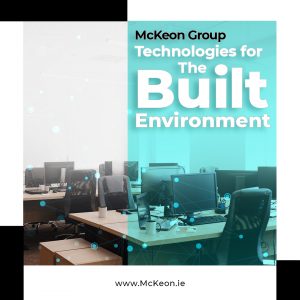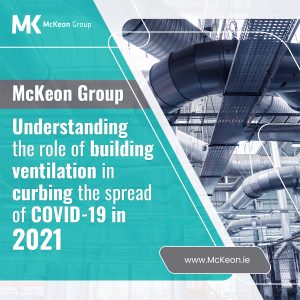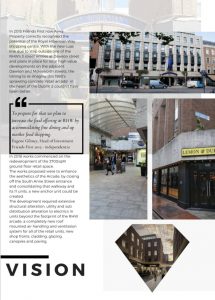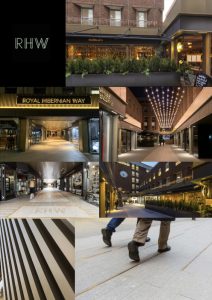Today marks the inauguration of incoming US President Joe Biden. At any other time, this might not be such a momentous global occasion, however, all eyes are on Washington DC this week and there is a strong expectation of – and appetite for – change. As a long-time climate activist, the bold ambitions of the new President and his administration are being taken seriously.

Last month, in anticipation of President Biden taking office, Larry O’Brien of ArcWeb.com published an article entitled ‘Biden’s Energy Plan Will Boost Building Automation and Smart City Tech’. After a triumphant campaign against Donald Trump, the next president of the United States got to work straight away, outlining his agenda for the future and how he plans to deliver this. One part of this agenda in particular that has sparked serious interest is his “potential to spur growth in the building automation marketplace and overall technologies for the built environment”. This includes building information modeling (BIM), IoT based systems, and digital twin technologies for cities. Many may not have realised this, however, the commercial building sector across the United States (and, arguably, globally) is in need of an upgrade, quickly. The new administration understands this. More than half of all commercial buildings currently standing in the US were reportedly built between 1960-1999 (and 21% were constructed prior to this time period), according to the EIA’s Commercial Buildings Energy Consumption Survey conducted more than two years ago. This means that many of these buildings are quite inefficient as they incorporate “various generations and levels of sophistication when it comes to building controls”. Any upgrades that are made will have to meet new federal building performance standards that will be created under Bidens rule.
Biden’s plan for commercial buildings is to upgrade approximately four million of these spaces to make them energy efficient without having to tear them down and rebuild; “The goal is to take nearly a quarter of the savings realized from these retrofit projects and return them directly to state and local governments where those buildings are located”. Measures will be taken to improve energy efficiency after the upgrade, these measures include advanced HVAC systems and LED lighting. These upgrades will also improve air quality. It is reportedly planned that further monies will be put aside to invest in homes, offices and warehouses for energy upgrades. In order to carry out these upgrades, more than one million new jobs will be created across the construction sector in all areas.
Reportedly, every year typical office buildings spend approximately 19% of total expenditures on energy. This is due to the fact that between 54% and 71% of total energy use on a daily basis goes toward heating and cooling (lights, A/C, radiators), making this the right place to start upgrading to save money. In fact, over 20% of all energy produced in the United States goes toward commercial buildings and they currently consume approximately 70% of the electricity produced also. A survey completed in September 2020 shows that throughout the pandemic, the energy being used by commercial buildings did not decrease as much as expected considering the nationwide lockdown.
Most commonly used HVAC systems consist of pneumatic controls and aging electronic hardware hardwired together via social networks. In order to cut down costs of manufacturing and production, the microprocessors must first be decreased in size and made stronger. As manufacturers realised this, the bid spec market saw a new price structure in relation to this piece of hardware. These price changes meant there was a jump in prices across all pieces of hardware and services in particular including, wiring and installation. These realisations created a ripple effect across the industry. Before, we would have had a “large space dedicated to housing all system controllers and running conduits to each physical access point”, however, it has now been replaced by “a model that scattered an appropriate number of controllers throughout the facility”, which is server based and can be accessed from anywhere and at any time.
The true impact of Covid-19 on real estate and construction technologies has yet to be determined, however, the author of the above-mentioned article is certainly bullish about the market for technological solutions such as HVAC systems and smart building technologies under the Biden/Harris administration.
About McKeon Group
Established in 1950 and ISO certified for more than two decades, McKeon Group offers expert construction, fitout and building services. The family-run Group delivers projects, services and maintenance across a range of sectors for State, local authority, FDI and private clients. For more information, contact: www.mckeon.ie








